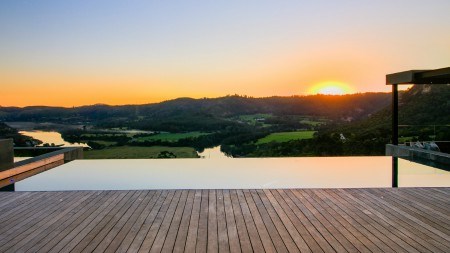According to the latest FNB Property Barometer, more people are buying holiday homes than a year ago, and the result is that holiday home prices are starting to increase.
“Pent up demand will likely green-shoot in the more “sentiment sensitive” sub-segments such as holiday home buying and investment property purchases,” says FNB economist, Siphamandla Mkhwanazi.
“In fact, recovery in these segments may already have begun - the proportion of these transactions ticked up marginally to a combined 9.6% in the first quarter of 2019 from a trough of 9.4% in the fourth quarter of 2018, as shown by the estate agents survey results. The slight recovery in holiday home buying has in turn translated into an acceleration in holiday home values as buyers take advantage of relatively attractive prices.”
Here are some tips for choosing a holiday home for you and your family:
- First of all, decide whether you want a holiday home for exclusive family use, or whether you would like to rent it out during periods when you aren’t using it. Your decision will influence both the location of the property as well as the way in which you furnish it.
- Decide whether you want an easily accessible regular weekend getaway or if a more distant holiday home for longer vacations might suit you better. If your holiday home is not too far from where you live you could take short breaks more often, whereas a property further away is unlikely to be used as often.
- Decide whether you prefer holidays in a quaint country village, a coastal town, or a bustling city with top shops, night life and restaurants.
- Make a list of activities family members enjoy such as adventure sports, water sports, hiking, fishing, game drives, eating out at restaurants and shopping.
- Whatever location you choose, affordabiity is a critical factor. In addition to the purchase price, you need to consider costs like furnishings and fittings, as well as electricity, water, rates - and levies if your holiday home - Look for a home that does not require a huge amount of upkeep, especially if the property may stand empty for a large portion of the year.
- Good security is another important factor, especially if the home will be vacant for long periods.
- As with any property purchase you need to consider the possibility that you will want to sell at some stage, so it’s best to buy a home that would suit most families. This will ensure the property appeals to a wider range of buyers when you do decide to put it on the market.
- In coastal or other scenic areas it may be worth spending a little more to have remarkable views. This will make the property more enjoyable for you and your family and will make it more saleable in future.
- Lock-up-and-go properties in sectional title complexes are often good choices for absentee owners, as security and garden maintenance will be taken care of by the body corporate or home owners’ association. Before you buy in a complex, though, be sure to check that an effective management is in place, with sound financial records.
- If you want your property to generate income when you are not using it, it’s important to ensure that the complex allows short-term letting, or even Airbnb letting. Look for a well-managed apartment block or townhouse complex that offers a key and laundry service, where you could book several weeks a year for personal use and leave the management agents to manage the short-term lets in between.
- Ask yourself whether you might also want to retire to the home in future. If you buy the property in your 40s you could have a second home that is fully paid for by the time you reach your 60s. Your primary residence will also have increased in value, and you could sell it or let it to provide you with cash flow or funds for further investment. Another advantage of buying with retirement in mind is that you would already be familiar with the neighbourhood, which will make relocation when you retire less stressful.





